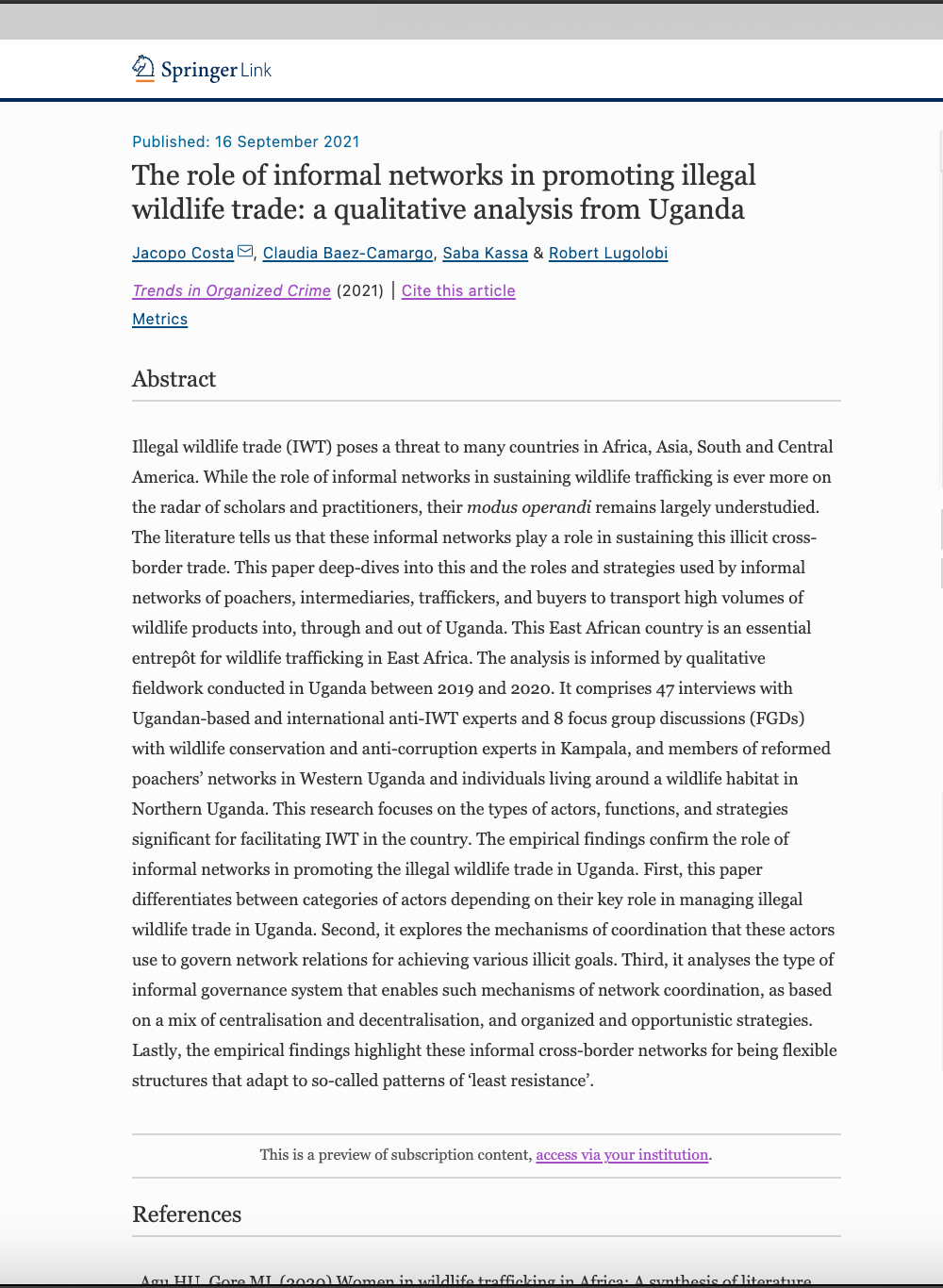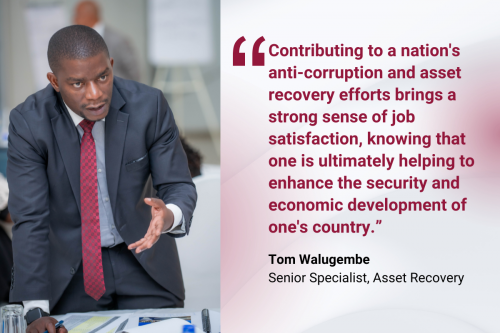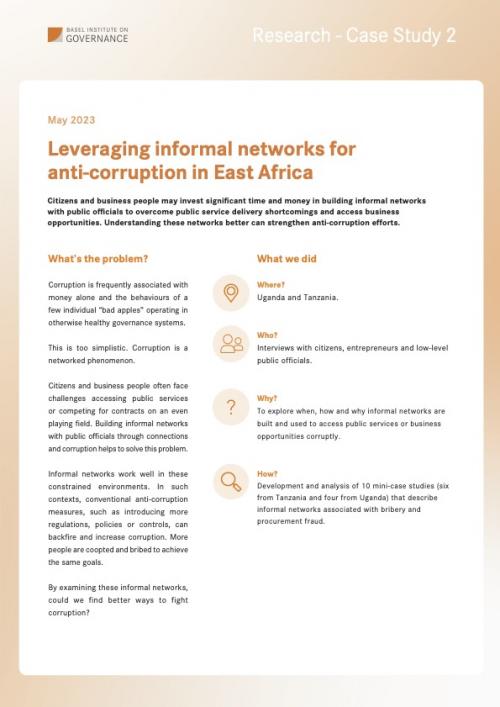The role of informal networks in promoting illegal wildlife trade: a qualitative analysis from Uganda
Illegal wildlife trade (IWT) poses a threat to many countries in Africa, Asia, South and Central America. While the role of informal networks in sustaining wildlife trafficking is ever more on the radar of scholars and practitioners, their modus operandi remains largely understudied. The literature tells us that these informal networks play a role in sustaining this illicit cross-border trade.
This paper deep-dives into this and the roles and strategies used by informal networks of poachers, intermediaries, traffickers, and buyers to transport high volumes of wildlife products into, through and out of Uganda. This East African country is an essential entrepôt for wildlife trafficking in East Africa.
The analysis is informed by qualitative fieldwork conducted in Uganda between 2019 and 2020. It comprises 47 interviews with Ugandan-based and international anti-IWT experts and 8 focus group discussions (FGDs) with wildlife conservation and anti-corruption experts in Kampala, and members of reformed poachers’ networks in Western Uganda and individuals living around a wildlife habitat in Northern Uganda.
This research focuses on the types of actors, functions, and strategies significant for facilitating IWT in the country. The empirical findings confirm the role of informal networks in promoting the illegal wildlife trade in Uganda.
- First, this paper differentiates between categories of actors depending on their key role in managing illegal wildlife trade in Uganda.
- Second, it explores the mechanisms of coordination that these actors use to govern network relations for achieving various illicit goals.
- Third, it analyses the type of informal governance system that enables such mechanisms of network coordination, as based on a mix of centralisation and decentralisation, and organized and opportunistic strategies.
- Lastly, the empirical findings highlight these informal cross-border networks for being flexible structures that adapt to so-called patterns of ‘least resistance’.
Acknowledgement and citation
This publication arose out of a collaboration between the Basel Institute's Public Governance and Green Corruption teams. The research presented in this publication forms part of a two-year project aimed at stopping corruption from fuelling illegal wildlife trade between East Africa and Southeast Asia.
This research was funded by PMI IMPACT, a grant award initiative of Philip Morris International (PMI). In the performance of their research, the authors maintained full independence from PMI. The views and opinions expressed in this document are those of the authors and do not necessarily reflect the views of PMI. Neither PMI, nor any of its affiliates, nor any person acting on their behalf may be held responsible for any use which may be made of the information contained herein.
Citation: Costa, J., Baez-Camargo, C., Kassa, S. et al. The role of informal networks in promoting illegal wildlife trade: a qualitative analysis from Uganda. Trends Organ Crim (2021). https://doi.org/10.1007/s12117-021-09433-y
Links and other languages



